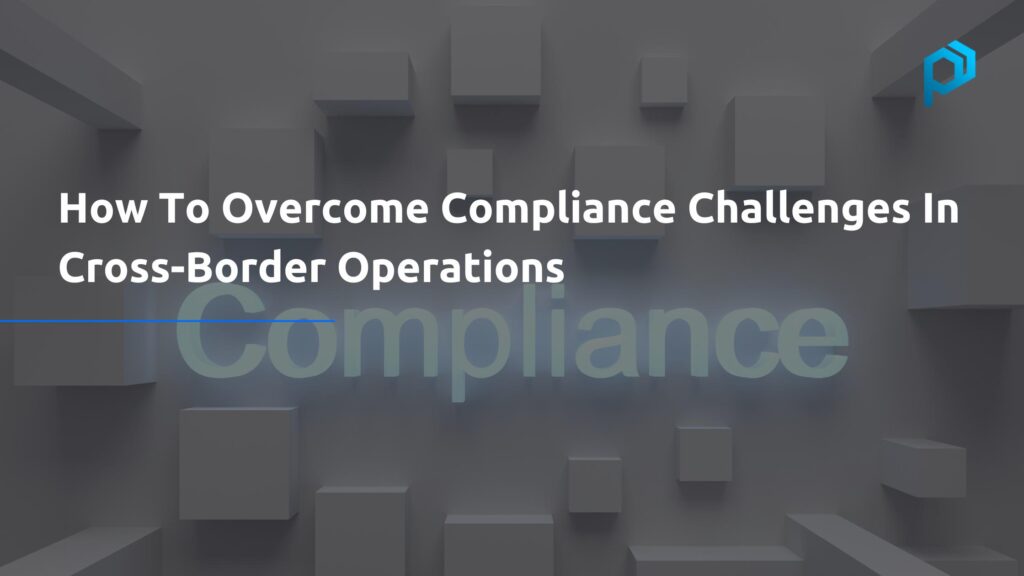How To Overcome Compliance Challenges In Cross-Border Operations
In today’s globalized economy, cross-border operations have become a cornerstone for countless businesses looking to expand their reach, diversify their portfolio, and tap into new markets. However, as companies venture beyond their home turf, they are met with a complex web of regulations, standards, and compliance requirements that vary from one jurisdiction to another. These challenges, if not adeptly navigated, can pose significant risks to business continuity, reputation, and profitability. This article delves into insights and strategies for companies to overcome compliance challenges and ensure smooth international operations.
Understanding Cross-Border Compliance Challenges
When a company opts to venture beyond its home country, it embarks on a journey of accessing new markets and opportunities. However, this expansion comes with its own set of intricate compliance challenges. The nuances of understanding and adhering to local laws, regulations, and customs become paramount. Ensuring payroll tax compliance, in particular, can be a complex endeavor, as the regulations can differ substantially from one country to another.
Furthermore, the challenges of compliance management aren’t uniform. They can fluctuate significantly based on the region of operation, the local business environment, and the specific nature of the company’s activities. Without a dedicated approach to understanding and managing these challenges, businesses might find their global ambitions hindered by unforeseen obstacles and liabilities.
Common Challenges In Compliance
Businesses expanding globally often encounter a myriad of compliance challenges that can impact their operations. One of the primary issues is navigating the complex landscape of local employment laws in the target country. This unfamiliarity can lead to complications, such as improper contracts or payroll compliance missteps. Moreover, the operational dynamics of businesses, both in core and peripheral activities, can differ substantially across borders. Without a clear understanding of these nuances, businesses may face operational disruptions and potential legal issues. Additionally, currency constraints, tax implications, and varying financial regulations in foreign territories can pose significant challenges for these businesses, complicating their financial dealings and growth strategies.
Strategies To Overcome Compliance Challenges
When considering global expansion, businesses should strategize effectively to overcome compliance challenges. Initially, it’s paramount to conduct comprehensive research and due diligence, delving deep into country-specific regulations and understanding cultural intricacies. Often, the best route to navigating these complexities is by engaging local legal and compliance experts, as they possess in-depth knowledge of regional laws and customary practices. In parallel, businesses should prioritize the implementation of a robust compliance management system. This ensures a methodical approach on how to handle compliance issues, mitigating risks associated with oversights.
Furthermore, fostering cross-functional teams—comprising departments such as HR, finance, and operations—can provide a comprehensive perspective, ensuring all facets of compliance are addressed. Lastly, in an ever-evolving regulatory landscape, it’s essential to regularly audit and refine compliance practices, ensuring the business remains ahead of any legislative shifts.
Data Privacy and Security Compliance
Today, the importance of data privacy and security has escalated as operations have shifted online. With vast amounts of sensitive information being transmitted and stored electronically, countries have developed strict data protection regulations. These rules vary globally, such as the European Union’s General Data Protection Regulation (GDPR). For businesses, complying with these laws is essential not only to avoid severe penalties but also to build trust with clients and customers. A breach or non-compliance can damage a company’s reputation. Thus, understanding and adhering to data protection regulations is crucial for businesses operating online.
Importance of Ethical Compliance
Ethical compliance goes beyond merely following laws; it’s about businesses operating with integrity and respect. This approach resonates with informed consumers, who value companies with strong moral principles. Furthermore, an ethically-driven business attracts top talent, as many professionals today prioritize employers that align with their personal values and contribute positively to society. So, when organizations overcome compliance challenges that pertain to ethical matters, it bolsters trust with consumers and makes them more appealing in a competitive job market.
Future Trends And Technologies In Cross-Border Compliance
The cross-border compliance arena is in a constant state of flux, adapting to global shifts in work patterns and regulatory requirements. The rising trend of “work from anywhere” has amplified the need for businesses to be agile and geographically adaptive. As such, there’s a growing emphasis on harnessing technologies that streamline compliance processes.
These technological solutions are designed to help businesses navigate intricate local regulations, ensuring they not only operate smoothly across borders but also remain on the right side of the law. As businesses eye global expansion and diversification, it becomes imperative for them to proactively explore and integrate these cutting-edge innovations. Doing so will not only keep them compliant but also equip them with the tools necessary to thrive in an increasingly interconnected world.
Conclusion
It can be difficult to overcome compliance challenges, especially in the context of cross-border operations. However, by integrating robust business process management solutions and leveraging the expertise of an employer of record, businesses can navigate the complexities of international regulations more effectively. Adopting the above-mentioned solutions, while maintaining a proactive and continuous learning approach, can prove instrumental for companies aiming to thrive in foreign markets. In essence, these strategies not only help to understand and overcome challenges but also pave the way for sustainable success in cross-border operations.
How To Overcome Compliance Challenges In Cross-Border Operations Read More »

